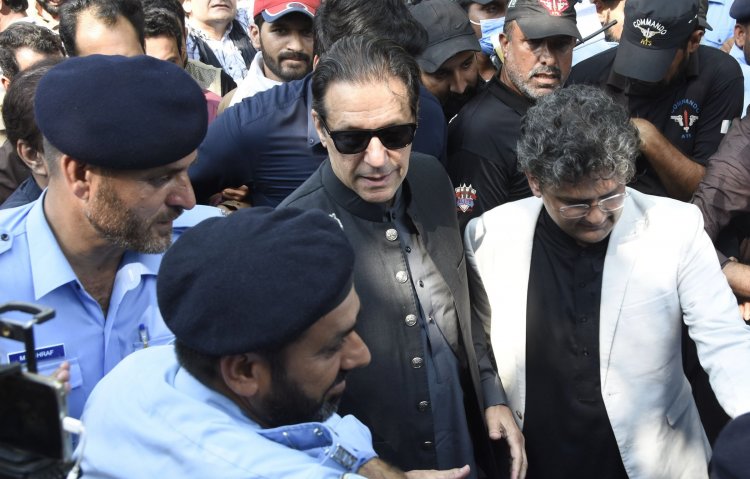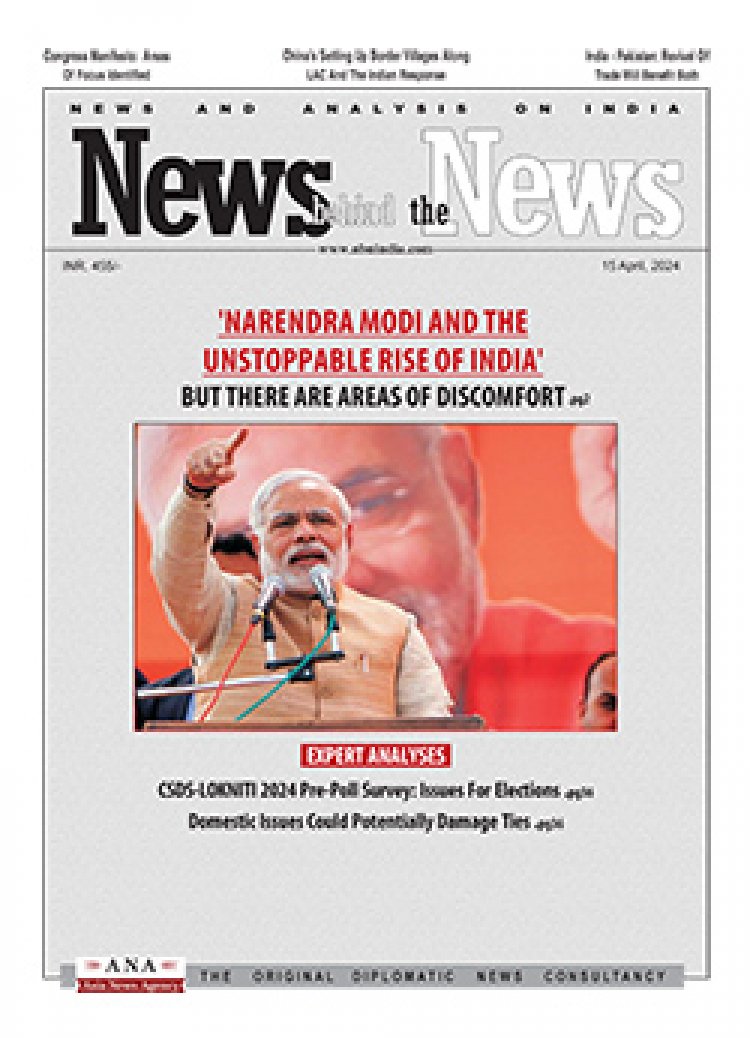Inside Pakistan: Imran Khan’s Arrest ‘Was Foretold’: Implications for India
STORIES, ANALYSES, EXPERT VIEWS

Former Prime Minister and Pakistan Tehreek-e-Insaf (PTI) chairman Imran Khan was arrested from the Islamabad High Court (IHC) Tuesday. The arrest was a carried out by the Pakistan Rangers wearing riot gear, rather than the police. The Rangers, a paramilitary force, are usually deployed for internal security matters.
Declaring that the arrest was ‘illegal’, the Supreme Court (SC) of Pakistan Thursday ordered that Khan be released.
The corruption charges: The arrest follows an earlier warrant issued by the National Accountability Bureau (NAB), which is tasked with investigating corruption cases.
The charges that led to the arrest relate to a murky corruption case involving the alleged payments of 5 billion Pakistani rupees ($17.5 million) to Khan and his wife for legalizing a laundered sum of money for the couple’s Al-Qadir Trust. It is alleged that land and money came from real estate tycoon Malik Riaz after the then-Khan government in 2019 helped Riaz in a case involving money repatriated to Pakistan following a U.K. investigation into the tycoon.
Khan denies the charges. But this is just one of many legal challenges facing Khan. In fact, he faces dozens of corruption and other charges, even terrorism.
Military behind the arrest: Calling in the Rangers indicates that the military establishment is behind the arrest, or at the very least certainly approves of it. Nothing in Pakistani politics happens without the military’s involvement, so perhaps that isn’t too surprising. And it is notable that the arrest occurred a day after the Inter-Services Public Relations – the media wing of Pakistan’s armed forces – denounced Khan floor alleging that a senior general - Major Gen Faisal Naseer - tried to kill him twice.
Khan’s arrest was foretold
Khan’s arrest was foretold, opines Nirupama Subramanian (National Editor, Strategic Affairs, The Indian Express). “As his popularity soared since his ouster from office, disqualification via conviction was the only way to keep him out of the election – he has been booked reportedly in 140 cases ranging from murder to profiting from the sale of state gifts. The Shehbaz Sharif-led government, formed by a coalition of parties called the Pakistan Democratic Movement (PDM) after Khan’s ouster, and the Army are united in this effort.
“The PDM fears an election rout at Khan’s hands. And if Khan is elected, Gen Munir, whose appointment as chief came through after the government put off his retirement date, would be the first casualty. While there appears to be some discord within the Army over Munir’s appointment and divisions over Khan, many at the top view him as a direct threat to its predominant position in Pakistan.”
How long the protests last, and how the Army deals with them will play a decisive role in what happens next. The danger however is that without visible leadership “if the protests continue, they could spiral out of control…..The PTI is nothing without Khan…”
Khan’s error of judgment: antagonised the army
But Khan’s error of judgment, according to The Indian Express “was that he forgot that those whom he railed against still call the shots. Since the time of an apparent assassination attempt on him during his ‘long march’ last year to influence the choice of the new Army chief, he has openly raged against the army brass, Prime Minister Sharif and the country’s home minister.
“……..What certainly tipped the scales was Khan’s repetition of his allegation at a public rally last week that the ISI was out to kill him, and that it had made not one but two attempts. Coming on top of open talk that the Army could not fight a war against India, it appears that a decision was taken to arrest him.”
Khan may make a comeback, “but for now, his party may have to be led by someone more acceptable to the powers that be.”
Army is distress
The army in Pakistan cannot be ignored even as it struggles. According to Avinash Paliwal (teaches at SOAS University of London and is the author of My Enemy’s Enemy: India in Afghanistan from the Soviet Invasion to the US Withdrawal), the army’s “political supremacy, institutional cohesion, and mass popularity, have long been articles of faith. Today, all three lie in tatters. Unlike previous instances, the generals don’t have the people’s support, recently faced an acute institutional split that played out in the rivalry between former chief General Qamar Javed Bajwa and pro-Khan former chief of Inter-Services Intelligence Lt. General Faiz Hameed (the wounds of which are yet to heal), and grudgingly accept that they lack the resources to fight arch-adversary, India. Combine this with low public acceptability of traditional political parties, mass support for Khan, and forex reserves dwindling at around US$4-5 billion, and the gravity of Pakistan’s distress becomes clear.”
What next: two key players
The two key players are the army and Imran Khan. The future of this battle, according to Paliwal “depends on two swing factors. One, the calibre of pro-Khan protestors, and two, the army’s ability and willingness to counter it….” The army is calculating that the “endurance of pro-Khan protests will die down, and a faux trial followed by Khan’s prolonged imprisonment and elections will take care of the rest. This is possible. But….Khan enjoys messianic appeal in Pakistan, and his trial could fuel the protests that the army wants to rid itself of….”
Dangerous situation for India and the region
Whichever direction the situation develops, Paliwal states “there are no good options for Pakistan. The choice is between an Islamic populist with autocratic tendencies and few practical solutions to structural problems, and a corrupt, politicised military, which is just as clueless on policy as it is determined to remain in power. This is a dangerous situation not just for Pakistan, but also for neighbours, especially India……. the ongoing tumult could undermine the leftovers of rationality that hold a badly needed ceasefire at the Line of Control….”
According to Kamal Davar (retired lieutenant-general, was founder of the Defence Intelligence Agency and deputy chief of the Integrated Defence Staff). “if the current widespread agitations across Pakistan do not subside, then not just for Pakistan but for India and the wider region the warning bells will have ominous tidings. Pakistan is after all a nuclear-armed state, so its stability is vital for the region…..”
To The Tribune, “the political uncertainty in Pakistan has grave implications for India, which has been grappling with cross-border terrorism for decades. With the recent killings of soldiers in Poonch and Rajouri indicating an escalation in terror activities, New Delhi must remain on guard in the coming weeks and months. There could be more trouble in store, especially if Pakistan’s civil-military establishment emerges stronger from the present upheaval.”















